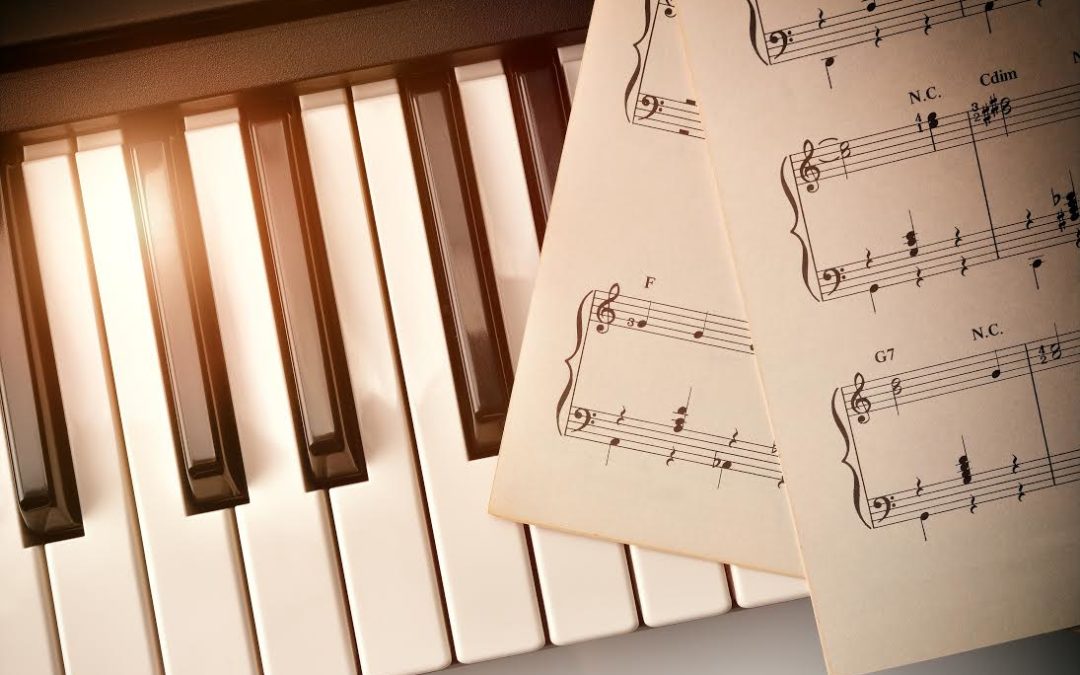Listening to music can bring you a lot of joy but understanding music theory can help you perform music and appreciate the music of others more deeply. Even if you already play by ear, music theory can help you understand how music is organized and notated. Learning about music theory can help you enjoy music more, and it can serve as a springboard to more advanced music theory and music composition courses.
Basic music theory introduces you to established musical systems, which helps you communicate with other musicians. In other words, music theory helps you speak the language of music. Understanding basic music theory is helpful for nearly anyone working in the music industry, or even in other areas within the entertainment industry, but it is essential for musicians who want to exercise greater control over their music.
The decision to learn music history can greatly influence your appreciation for music, and it can support your capacity to work within the music industry. Where you get your music theory information is an important decision. Many people are taking music theory lessons online.
But are these online courses and lessons just as good as going to a traditional campus when it comes to learning music theory? Here is what you need to know.

Blog Post
"*" indicates required fields
By submitting this form, I authorize Musicians Institute (MI) to make or allow the placement of calls, emails, and texts to me at the phone number that I have provided, including through the use of automated technology, or a prerecorded or artificial voice. I understand that I am not required to provide my phone number as a condition of purchasing any property, goods, or services. I agree to the terms of MI’s Privacy Policy. MI will not sell or rent your information to third parties, and you may unsubscribe at any time.
Learning Music Theory
Learning music theory can be challenging, especially if you try to do it on your own and without structured assistance from a knowledgeable professional. Music theory classes can guide you through the basics of harmony, rhythm, pitch, meter, scales, keys, and notations. A music theory course can also help you understand complex concepts, such as key signatures, meter signatures, triads, and seventh chords. By the end of a music theory class, you will know the major and minor keys, be able to read and write and treble and bass clef and be able to notate and harmonize a simple melody.
As you can see, music theory gets pretty complicated pretty quickly. Without guidance, beginners can get confused and lost; these people are at risk of giving up before they get to the fun stuff. People with a little bit of music theory knowledge may have a different problem, they start out reading concepts they already know and quit early because they think there is nothing left to learn. Structured training in the form of a music theory class can keep learners on track and interested.
Not all music theory courses provide the exact same structure, though, as music is a living language. Music is also a highly personal experience, which means people can perceive, understand and express musical concepts in very different ways.
About Learning Music Theory Virtually
Online courses, also known as distance learning, allow students to use computers to access coursework rather than sitting in a classroom.
More than 6 million students in the United States took at least one online class in the fall of 2016, according to the Babson Survey Research Group, which also showed that distance learning enrollments had increased for the fourteenth straight year. Much of this growth is due to the convenience of distance learning, and improving reputations of online learning institutions. Scientific research published in Frontiers in Psychology shows that online learning could be just as effective as face-to-face education.
Online learning, particularly online learning for music theory, is becoming popular for a number of reasons. Students may be attracted to the wide variety of programs and courses available online, for example, or enjoy the comfortable work environment coupled with the convenience and flexibility of studying from home. Having information available 24/7 and available in a variety of formats can make it easier to learn some of the more complex aspects of music history. Many online music theory students enjoy being able to review material at will or to turn up the volume as needed.
Still, some students prefer the structure, personal interaction and environment of a traditional classroom. They enjoy being able to ask questions of instructors, which can be helpful when learning complex music theory concepts, and to discuss their ideas and experiences with other students.
There are advantages to attending a music theory class on a traditional campus. Specifically, music colleges have facilities specially designed for musicians, including:
- Full production sound stages and recording studios
- Fully equipped practice facilities
- Fully equipped computer labs with the latest industry standard equipment
- Concert Hall access, featuring full audio/video recording capabilities
- Multiple performance and recording studios where students can practice what they have learned
Many schools offer on-campus experiences for their online students. The Babson Survey Research Group study shows that nearly 85 percent of online students live in the same state as their online school and that many live within 50 miles of the school’s campus. Almost 53 percent of the online students also enrolled in at least one on-campus course.

What about websites offering music theory?
There are several websites now offering music theory online. Ableton’s Interactive Learning Music Course is specifically for beginners. This course begins by prompting visitors to click on boxes to create musical patterns and beats and to learn about the various instruments and the sounds they make. LightNote is a visually appealing interactive tutorial on sound waves, harmony, pentatonic scale, chromatic scale, chords, keys, and diatonic chords.
YouTube also offers music theory lessons. Michael New posts videos in which he plays notes on his keyboard and writes explanations on a whiteboard sitting just above the keyboard. YouTube videos and websites also offer lessons on learning to read music.
While these videos and websites are eye-catching and convenient, they are not structured like an online or campus course. This means students may miss learning certain concepts or misunderstand others.
Music Theory Coursework
Online coursework should be as comprehensive as traditional classroom training. The syllabus should include:
- Basic overview of music theory
- Scales, keys, and intervals
- Rhythm and meter
- Chords, triads, and harmony
Basic overviews should discuss the elements of music, tonality, the fundamental and partials of a note, the difference between chords and harmony, the five-line staff, and more. Students should learn how to use the diatonic set to create major and minor scales and to read and write rhythm and meters.
In the end, online music theory learning should provide the in-depth information you need to deepen your appreciation for music, and to boost your music career.
Source
https://www.onlinelearningsurvey.com/highered.html
https://www.ncbi.nlm.nih.gov/pmc/articles/PMC4228829/
https://learningmusic.ableton.com/
https://www.youtube.com/playlist?list=PL1302D94F247600CD
https://www.makeuseof.com/tag/10-online-resources-learn-read-music/

